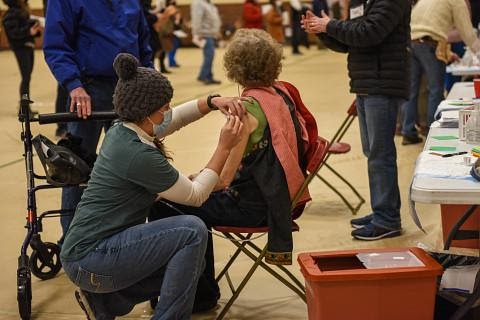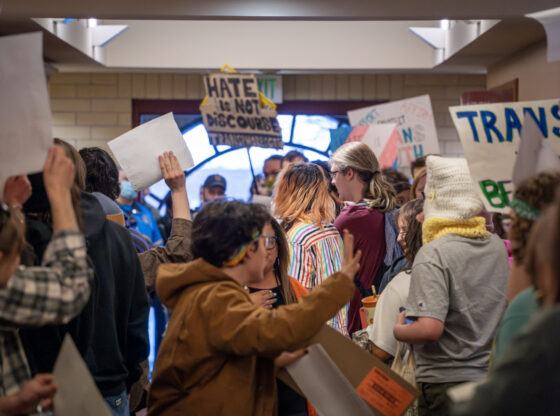As COVID-19 hospitalizations rise in Colorado, medical professionals face added challenges in an already-strained public healthcare system. Staffing shortages and an initial lack of personal protective equipment have created more hardships for nurses battling COVID-19.
Molly Geldermann is one of more than 52,000 registered nurses in Colorado who have weathered hardships caused by COVID-19. Geldermann has been a nurse for two years and spent part of her career working during fall of 2020, when there were about 14,000 people in Colorado hospitalized due to COVID-19. That number has risen by about 64% as of Oct. 2. In this interview, Geldermann shares what she faced while working in a local COVID-19 ICU. This conversation has been lightly edited for clarity and length.
O’Clair: Can you tell me about what your job looked like, before the pandemic versus after, on a day-to-day basis?
Geldermann: So before COVID-19, as an ICU nurse, we were really expected to take care of one or two patients. Once the pandemic got crazy, when we started losing staff to go take travel assignments, or they just got burned out, it became really common to take on three patients at a time, which just makes everything harder…Not having the right staff and resources made the unit feel constantly hectic and like you are putting out fires…So I guess the whole vibe kind of changed from…having the time, especially as a newer nurse…to learn and ask questions and do the little things for my patients, like making sure they get a bath every shift…things that aren’t lifesaving, but are important…to all of a sudden, like, okay, which of my patients can I leave alone for a while while this patient is crashing?
O’Clair: It sounds like that personal connection to patients is very important to you.
Geldermann: Yeah, the connection to the patients and also to the family. Because often with ICU patients, if they’re on a ventilator and sedated you can’t really interact with them. When you can’t do those [little] things for your patient, it just sucks, especially if you know they are at the end of their life, and you can’t really be there to give them the dignity that they deserve, or the more personal care that they deserve. It’s really hard.
O’Clair: How did you feel when you were treating COVID-19 patients?
Geldermann: It was hard because a lot of people did not make it. And then the people that did, it’s not like they just left the hospital and got to go home. It was like they were going to long term care hospitals, or they had a tracheostomy. Or they were so debilitated and weak from such a long time in the ICU that they were going to need physical therapy to be able to walk again. And then there’s also the fear always of am I going to get it? Am I going to bring it home and spread it to my husband or anyone that I come in contact with?
O’Clair: I know, for a lot of nurses, death kind of stays with you. Do you feel like that was your experience as well?
Geldermann: When most of the patients are ventilated, and prone on their stomach and paralyzed, you just kind of know most of them are probably not going to make it. It was hard because we weren’t allowing visitors. So having family members pretty much say goodbye on an iPad. I think those are the memories, or the part of deaths, that have stuck with me the most. I just can’t imagine if that were my mom or my sibling in the hospital and I had to say goodbye over a Zoom call. That’s horrific.
O’Clair: Is there one specific experience from your time [working] in the ICU that has stuck with you the most?
Geldermann: I remember when things first started off and I worked my first shift on the COVID-19 unit. It was bad, but it was not horrible. And then a week later I went and it was like walking into a different world. They had just finished coding one patient. And then immediately after that, another patient coded. So I was walking into the start of my shift and that is what was going on …CPR going on in one room, a crash cart in front of another room, and there was a nurse crying, and it was mayhem. I will never forget that. Walking into the unit and seeing that scene. How did things get so bad in the course of a week?











